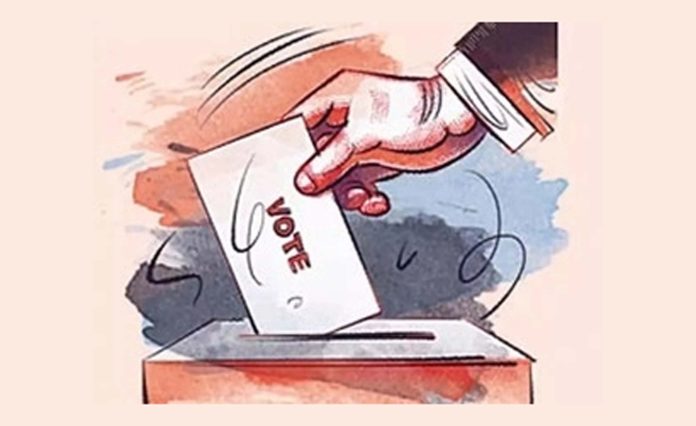In an impressive display of democratic participation, the Anantnag-Rajouri Parliamentary constituency recorded a 53 percent voter turnout, the highest since 1984. This significant increase marks a remarkable resurgence in voter engagement, especially considering the mere 9 percent turnout in the 2019 elections. It has been achieved with the collective effort made by voters, polling staff, security personnel, and candidates. The Anantnag-Rajouri constituency, spanning 18 Assembly segments with over 18.36 lakh registered voters, saw long queues at polling stations from early morning. The previous record turnout for this seat was 50 percent in 1996 and an even higher 70 percent in 1984, making this year’s turnout a notable achievement in the region’s electoral history. The Anantnag-Rajouri Parliamentary seat has been revised to include the Rajouri-Poonch area from the Jammu Division. The newly constituted seat now encompasses 18 assembly segments: 11 from the Kashmir region and 7 from Jammu’s Poonch and Rajouri districts. In this election, the BJP has chosen not to field a candidate, instead supporting the Apni Party candidate, Zafar Manhas, to counter both the National Conference (NC) and the People’s Democratic Party (PDP). This has led to a triangular contest, making the race intriguing due to the diverse electorate across both the Kashmir and Jammu divisions. The voting patterns will ultimately determine the outcome. The people of Jammu and Kashmir have witnessed the benefits of democracy, as the Government has strengthened all aspects of Panchayati Raj in the region. This election is particularly significant as it is the first major one following the abrogation of Article 370, and the enthusiasm of the voters clearly indicates positive changes over the past five years.
Across Jammu and Kashmir, the overall voter turnout for the Lok Sabha elections reached 58 percent, surpassing the 49.58 percent recorded in 2014 and the 47.99 percent in 1996. This uptick in voter engagement is a positive indicator of the democratic spirit thriving in a region. The constituency’s high turnout can be attributed to several factors. The efficient deployment of 9,000 polling staff across 2,338 polling stations ensured that the voting process was smooth and accessible. The establishment of 542 polling stations in the Rajouri district, with 278 categorised as sensitive, and 171 in the Poonch district, including 55 along the LoC, demonstrated a meticulous approach to managing security and accessibility. Despite recent militant strikes in the region, stringent security measures were in place to ensure voter safety. Security agencies ensured that the election proceeded without incident. The sight of long lines outside polling stations underscored the determination of the electorate to exercise their democratic rights. Surankote reported the highest turnout at 68 percent, while Kulgam and Anantnag saw lower participation rates of 32 percent and 33 percent, respectively. Migrant polling booths also recorded over 50 percent turnout, with 9,000 postal ballots cast, reflecting the inclusivity of the electoral process.
The overall voter turnout across Jammu and Kashmir is a testament to the resilience and commitment of its people to democracy. These figures reflect broad-based participation across the region. The Anantnag-Rajouri constituency’s successful voter turnout underscores the importance of electoral participation even in regions with significant security concerns. The historic turnouts are not just a numerical achievement but a symbol of the enduring democratic spirit in Jammu and Kashmir. The massive turnout represents a triumph of democracy over terrorism and separatism. It sends a powerful message about the region’s commitment to democratic processes. As the electoral dust settles, the focus will now shift to addressing the grievances of all the voters, irrespective of voting patterns, raised during the election period. This mega democratic exercise’s success should serve as a foundation for future electoral processes, reinforcing the importance of inclusive and secure voting mechanisms in Jammu and Kashmir.
Trending Now
E-Paper


